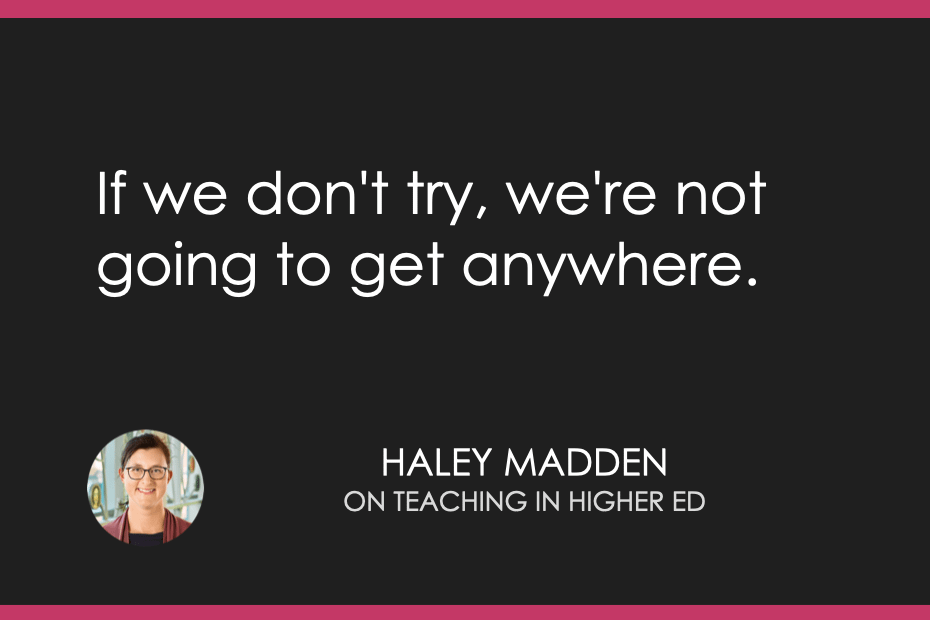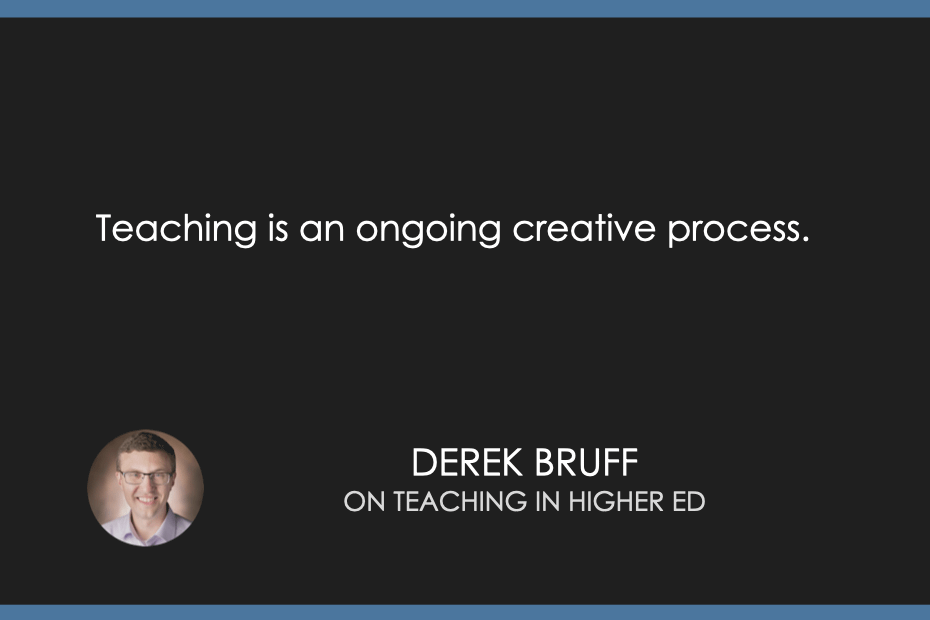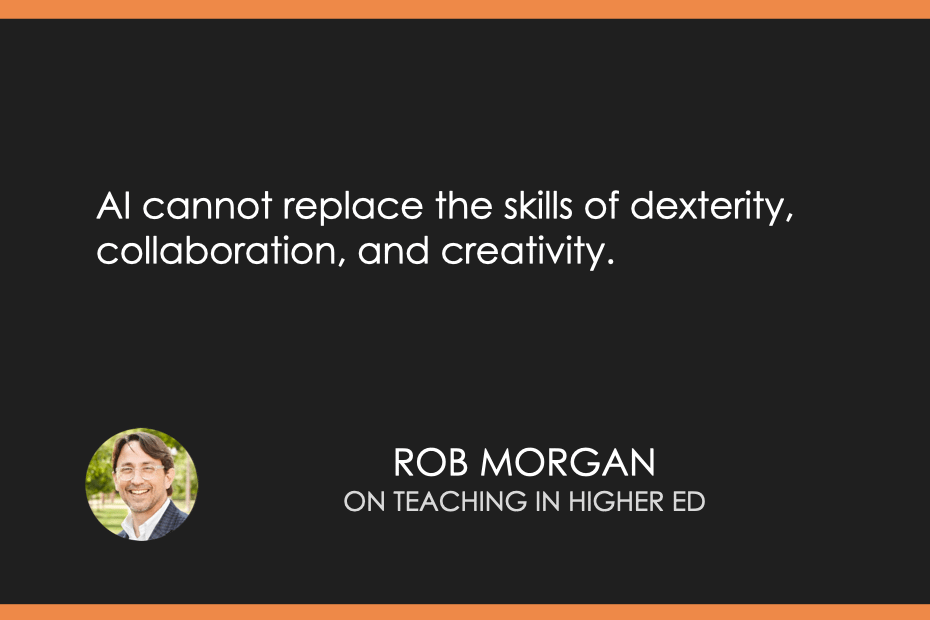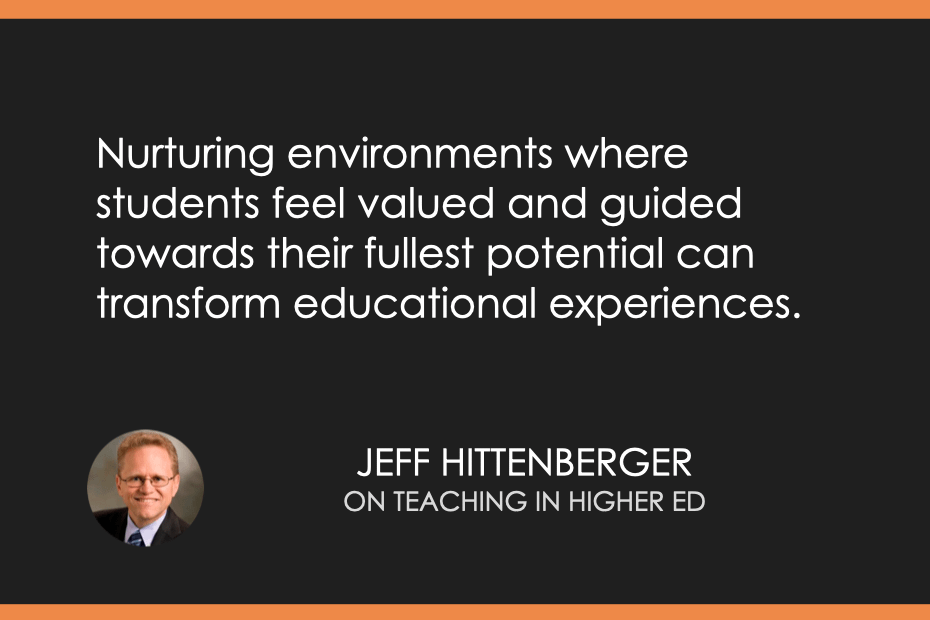Maha Bali discusses cultivating critical AI literacies on episode 545 of the Teaching in Higher Ed podcast.
Quotes from the episode
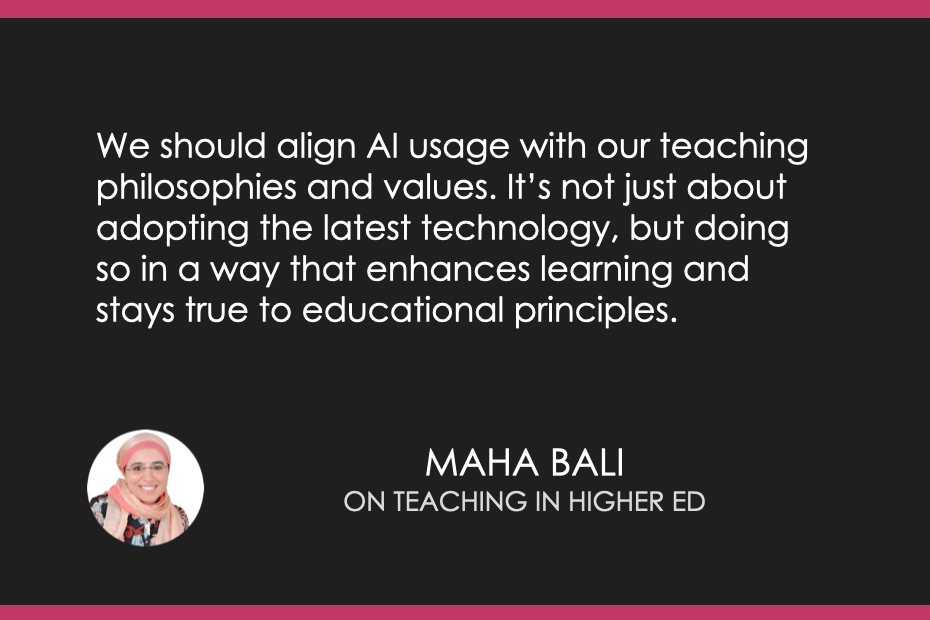
You need to teach people to critique the dominant culture, but you still need to teach them the dominant culture in order for them to survive economically.
-Maha Bali
Maha Bali: “We found that different AI tools can produce radically different results based on user data or configurations.
-Maha Bali
Sometimes my students teach me new things about AI. This happens a lot.
-Maha Bali
